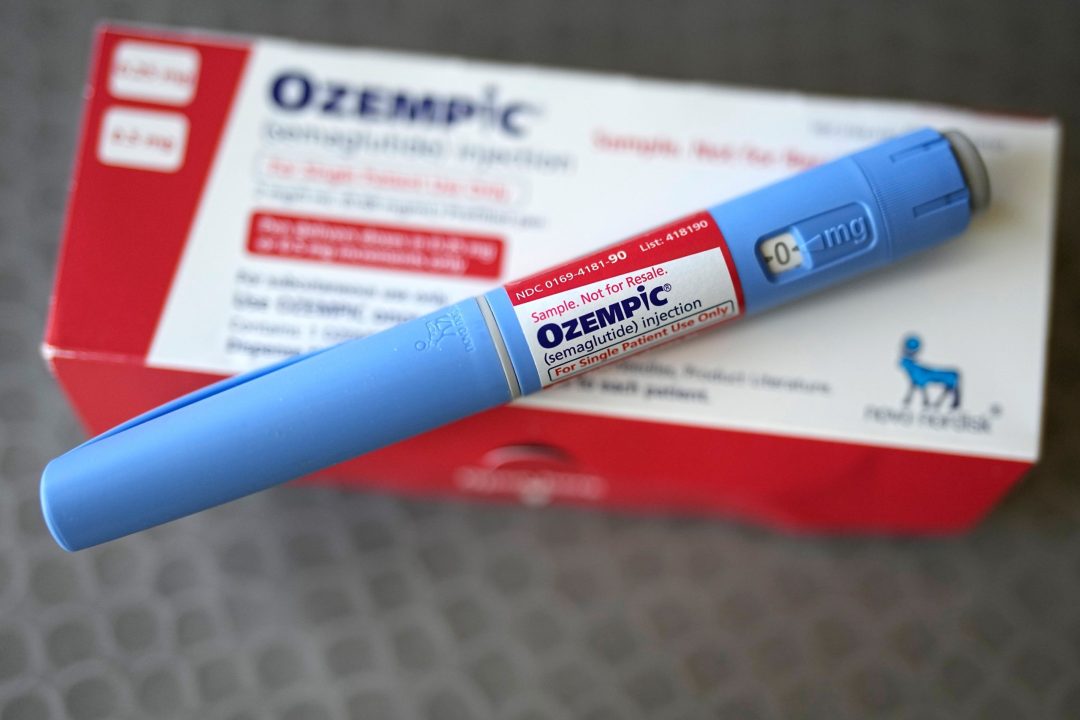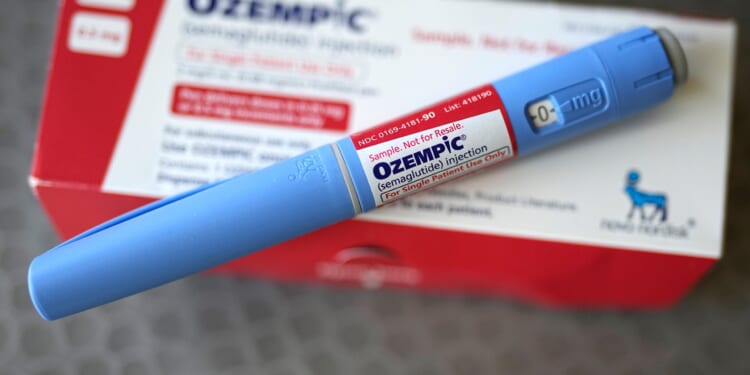
President Donald Trump has unveiled a sweeping action to slash the cost of the nation’s most expensive weight-loss drugs, casting it as a turning point for both healthcare affordability and economic fairness. In what the White House calls a “historic” agreement with pharmaceutical giants Eli Lilly and Novo Nordisk, the administration announced that prices for popular GLP-1 agonists (weight-loss drugs) such as Ozempic and Wegovy will drop by more than two-thirds under a new initiative known as TrumpRx. The program is a government-backed platform that allows Americans to purchase prescription drugs at discounted rates negotiated by the administration.
The measure, described by officials as one of the largest single reductions in drug prices in U.S. history, aims to make medications long seen as luxury treatments accessible to millions of Americans battling obesity and related conditions.
Applause for the move was far from unanimous. Within the “Make America Healthy Again” (MAHA) camp — the wing of the movement that believes real health starts with prevention rather than prescriptions — the mood was restrained. Critics argue that the deal hands pharmaceutical companies both market dominance and political validation, locking Americans further into a medical model driven by patented injections.
The Deal
The White House framed the deal as a landmark victory for American consumers:
The agreement represents a historic reduction in prices for Americans on the two drugs with the highest annual expenditures in the United States, both of which help adults struggling with diabetes, heart disease (Ozempic and Wegovy only), obesity, and other conditions.
Under the terms of the new arrangement, the monthly cost of Ozempic and Wegovy will fall from about $1,000 and $1,350, respectively, to $350 when purchased through TrumpRx. Prices for Eli Lilly’s Zepbound and Orforglipron, once approved, will be reduced from $1,086 to an average of $346. If — or rather when — the FDA later authorizes the Wegovy pill or similar oral GLP-1 drugs currently in development, “the initial dose of those drugs will be priced at $150 per month” through the portal.
The administration said the new pricing will allow Medicare and Medicaid to cover obesity treatments “at a dramatically lower cost to taxpayers than that proposed by the Biden Administration.” Under the agreement, Medicare will pay just $245 a month for drugs such as Ozempic, Wegovy, Mounjaro, and Zepbound. That is less than half of prior proposals.
According to the fact sheet:
These low prices will enable Medicare to cover Wegovy and Zepbound for patients with obesity and related comorbidities for the first time.
Beneficiaries “will pay a co-pay of just $50 per month.” Plus, “state Medicaid programs will also have access to these medications at these prices.”
The deal also extends to other high-cost medicines. Eli Lilly’s Emgality, a migraine therapy, will now cost $299 per pen, down $443 from its list price. Trulicity, another diabetes treatment, will fall to $389 per month, a reduction of nearly $600. Novo Nordisk’s insulin products NovoLog and Tresiba will be capped at $35 per monthly supply.
Broader Policy Push
The agreement is not only about lowering prices. The White House said it also includes “large investments to expand U.S. manufacturing capacity.” Novo Nordisk pledged an additional $10 billion to strengthen its American footprint, including full U.S. production of the Wegovy tablet if approved. Eli Lilly announced “at least $27 billion” in new manufacturing investments.
At the same time, the initiative revives one of Trump’s long-standing themes — ending what he calls “global freeloading.” The fact sheet notes:
The United States has less than five percent of the world’s population, yet roughly 75% of global pharmaceutical profits come from American taxpayers.
Trump said that, for too long, drug makers “offered low prices to other wealthy nations while charging Americans significantly higher prices.” The White House explained that U.S. taxpayers fund much of the research and healthcare spending that sustains the industry. Yet, Americans end up subsidizing foreign discounts through inflated domestic prices. The new agreements require Eli Lilly and Novo Nordisk to guarantee MFN (Most Favored Nation) prices on all new medicines they bring to market. That is consistent with the president’s executive order directing that Americans have access to the MFN price for these drugs.
Together, the measures aim to realign both the physical and economic foundations of the pharmaceutical industry. The alleged goal is to bring more production back home and reshape a global market that has long left Americans footing the bill.
MAHA?
The administration ties the deal to a broader public-health campaign branded “Make America Healthy Again.” The Centers for Disease Control and Prevention (CDC) estimates that over 40 percent of American adults are obese. That condition drives chronic illnesses such as diabetes, hypertension, and heart disease. The deal, said the White House,
makes available potentially life-changing medications to adults struggling with obesity, representing a historic opportunity to reverse the obesity epidemic and associated chronic disease crisis when coupled with lifestyle changes to preserve and improve health gains long-term.
The announcement underlined that “the Administration remains committed to a comprehensive Make America Healthy Again approach.”
Speaking at the White House at the event signifying the announcement, Health and Human Services (HHS) Secretary Robert F. Kennedy Jr. thanked Trump for the agreement. He said it will have a “dramatic effect on human health.”
“Americans will lose 125 million pounds by this time next year,” he predicted.
Kennedy Flips
President Trump, speaking from the Oval Office, praised the new generation of weight-loss drugs as “effective.” “I haven’t heard anything bad about them, I only hear good about them,” he said. He then addressed Kennedy, prompting hearty laughter from the room:
Is there anything bad about them, Bobby? Some day, maybe it will come out, which we’ll notify you immediately — including the drugs known as Zepbound, Wegovy, [and] Ozempic.
Kennedy, indeed, has not always been so enthusiastic. Just a year earlier, he had criticized what he called the “mainstream media cheerleading” for Ozempic and similar drugs. Reflecting on a New York Times op-ed, he wrote at the time:
According to the writer, obesity seems to be a matter of lack — a lack of bariatric surgeries and a lack of Ozempic courtesy of Novo Nordisk, a Danish multinational whose wealth is bigger than Denmark’s entire economy. As this drug becomes more widely available, the journalist seems to suggest, “America’s biggest health problem” will be under control.
Kennedy warned that the rush to medicalize obesity distracts from the country’s deeper sicknesses. Those, he said, include a “toxic industrial food system,” sedentary living, and government agencies comfortably nested in corporate pockets. When his HHS nomination was announced last November, GLP-1-makers’ stocks nosedived — proof that, at least for a moment, Wall Street believed the crusader might actually mean it.
A year later, Kennedy seems to have made peace with the syringe, praising semaglutide’s slimming power while championing cheaper access. His shift from “Big Pharma’s worst nightmare” to promoter of $350 shots shows that in Washington, even the clean-living advocates eventually find common ground with the corporations — if the price is right.
Weigh the Costs
The federal government has no constitutional authority to dictate healthcare. However, it has long acted as a promoter of corporate profits — often at the expense of Americans’ health.
One of the few organizations consistently tracking both regulatory capture and the mounting risks of Big Pharma’s “remedies” is Children’s Health Defense (CHD). It was founded, ironically, by Kennedy himself.
Before rushing to fill an Ozempic or Wegovy prescription, it’s worth knowing how these drugs actually work. GLP-1 agonists mimic a gut hormone that slows digestion, suppresses appetite, and lowers blood sugar, effectively tricking the brain into feeling full. As documented by CHD and others, the result can be rapid weight loss, but also a cascade of severe side effects. Those include muscle and bone loss, blindness, dental decay, gallbladder disease, intestinal paralysis, suicidal inclinations, and even death.
So before betting your metabolism on the latest government-endorsed miracle, consider doing what Kennedy once advised: Fix the liefstyle, not just the symptoms.











